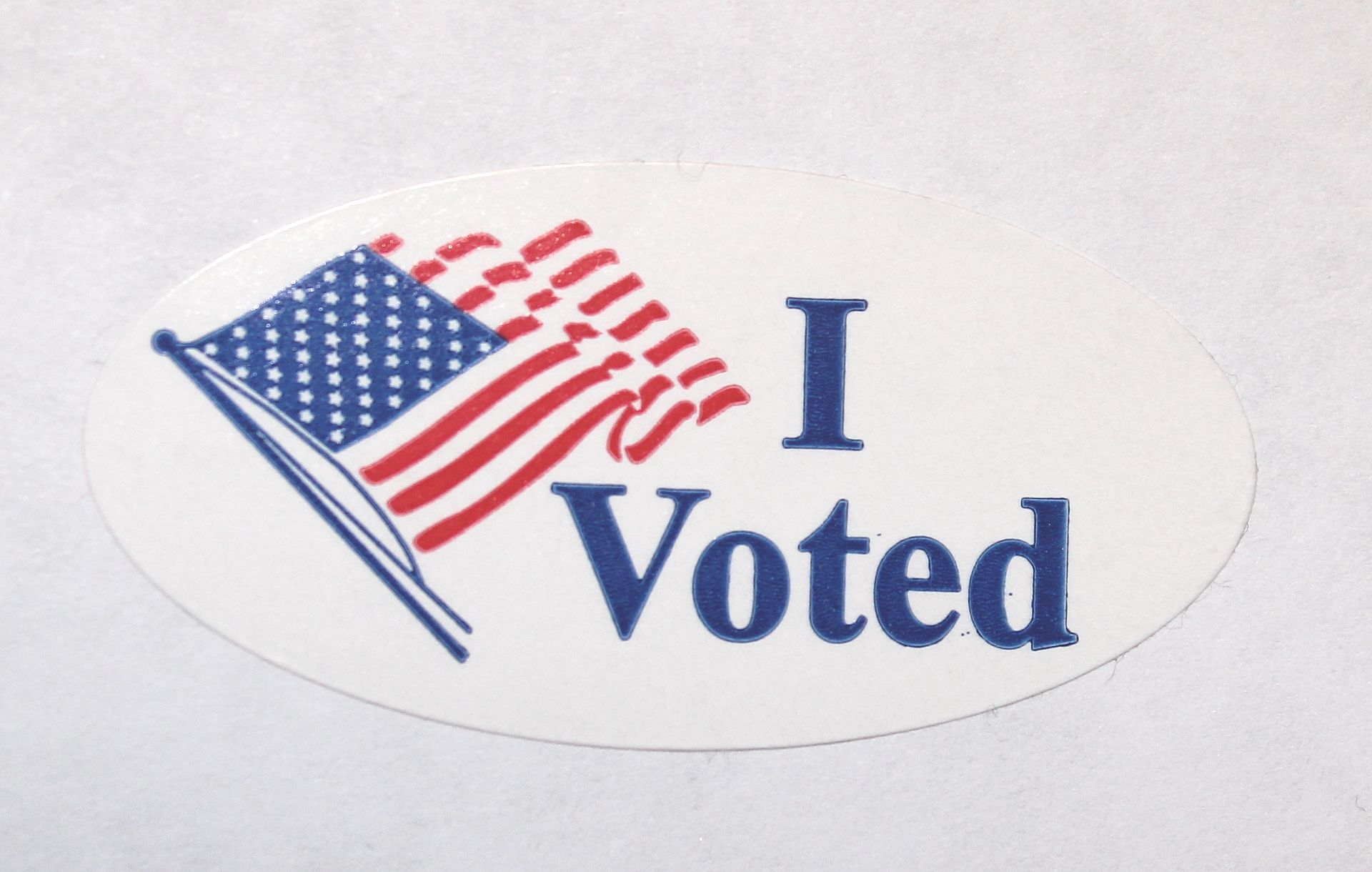What’s Not Being Counted: Voter Suppression Legislation in the U.S.

“I voted sticker” via Wikimedia Commons / Public Domain
Priorities USA released a study that shows strict voter-ID laws in Wisconsin reduced voter turnout by 200,000 votes in the 2016 presidential election. The turnout rate is said to have suppressed the vote of primarily Democrats and Black voters, support which would have helped Clinton’s campaign. Trump won the state by only 22,748 votes.
Advocating for stricter voting laws is typically a means of cracking down on voter fraud in the U.S., a practice which rarely ever happens. This justification has been used historically as a means of suppressing the right to vote for minority communities.
Currently, 34 states either require or request identification. State requirements fall into two categories: strict and non-strict. A state with strict requirements will ask voters without the required form of identification to cast a provisional ballot. Under non-strict requirements, a voter who does not have the requested identification may still vote, with no provisional ballot necessary. The states with strict voter requirements in the U.S. right now include: Kansas, Iowa, Wisconsin, Indiana, Tennessee, Mississippi, Georgia, Virginia, New Hampshire, as well as Arizona and Ohio which are strict with non-photo ID.
This year, Missouri passed new restrictions. Republicans were interested in legislation to impose voter-ID requirements, a policy which was unsuccessful in previous years. The GOP amended the bill to make ID attainment accessible; the new law states non-driver license ID cards will be free along with the documents necessary to acquire them. Obtaining the appropriate ID form imposes a barrier to voting that primarily affects Black, Latinx, and low-income voters as well as elderly citizens, in brief, those who are systematically oppressed in this country. The superimposition of lived experiences as a result of this marginalization reinforced by the newly imposed legislation in Missouri alone is likely to discourage individuals in these communities from voting, despite the state’s agreement to waive the required fees. Even so, Missouri has reportedly failed to allocate an appropriate amount of funding to support the new law, prompting the American Civil Liberties Union (ACLU) to file an action in court.
The past couple of years have witnessed a lot of back and forth with regard to legislation in many states. Texas proposed a measure which was struck down in April for violating the Voting Rights Act. However, less than two weeks ago, SB 5 enacted non-strict ID requirements for the state.
This March, Gov. Asa Hutchinson signed a bill into law that recovered many of the requirements of a former proposed voter-ID law struck down by the Arkansas Supreme Court in 2014.The new law allows voters to cast a provisional ballot at the polls, which will only be counted if they go to the offices of election officials by noon on the Monday after the election.
Last year, the federal court condemned voter ID laws in North Carolina and initially Wisconsin. In August 2016, an appeals court approved the law for Wisconsin on two conditions: that the state keeps its promise to provide temporary free IDs to those in need and publicizes the new law. The National Conference of State Legislatures (NCSL) leaves Wisconsin in the strict requirement category.
Following the 2012 election, Republicans released propaganda which credited voter fraud as the force responsible for ensuring Obama’s second term. The sentiment expressed by this propaganda is part of a larger agenda interested in using voter fraud as a justification for voter ID laws, laws which disproportionately suppress the votes of People of Color in the U.S. CNN’s Van Jones calls this “Whitelash” against a changing country, or the push from white America to snatch back the executive power to which they feel entitled. Jones asserts one of the ways Whitelash operates is by suppressing Black Americans’ voting power through strict voter laws. Examining recent voter ID laws through the lens of Whitelash is essential in order to understand how voter suppression is being used as a power grabbing strategy interested in sustaining white dominance, i.e. Trump’s America.
Given the current political spotlight which continues to draw attention to election fraud via the Russia probe, it is essential that we lend equal attention to voter manipulation brought on by domestic attitudes and policies that influence every election at every level of the U.S. political system.




